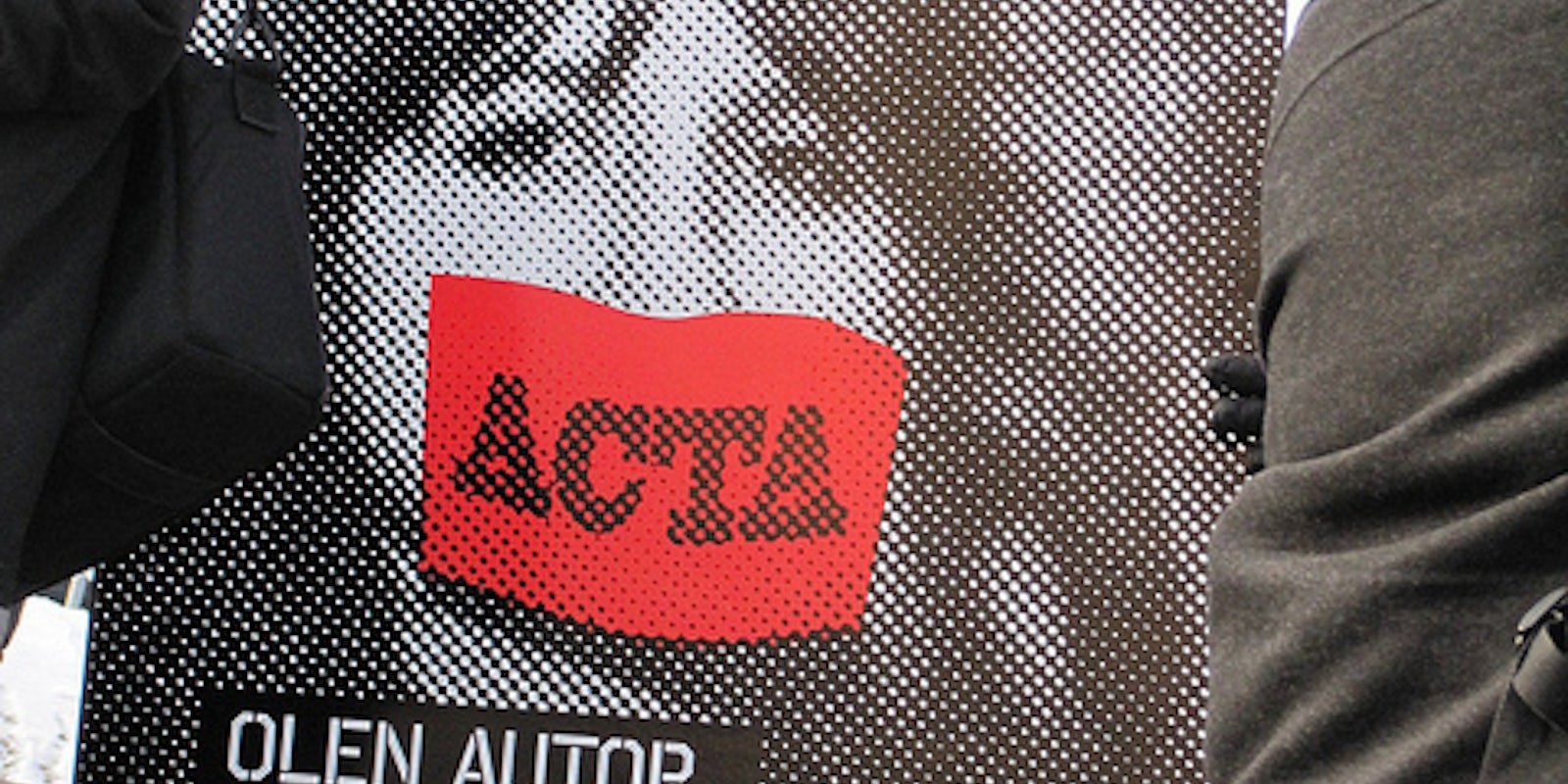The Anti-Counterfeiting Trade Agreement (ACTA) stalled today as members of the European Commission said they will have to ask Europe’s highest court if the antipiracy treaty violates fundamental EU rights.
Since the controversial treaty was signed over a month ago, it has faced widespread opposition in the streets and on the Web. Today’s development has been viewed by many as a key blow to the agreement: the headline on Reddit reads “Bye bye ACTA.”
The celebration may be premature, as EU trade commissioner Karel De Gucht sounded confident that the high court will uphold the legality of ACTA. (Movie studios and music labels whose business is arguably threatened by online piracy have pushed trade agreements like ACTA as a way of tackling the problem, in parallel with national legislative efforts.)
“This debate must be based upon facts and not upon the misinformation or rumor that has dominated social media sites and blogs in recent weeks,” De Gucht told reporters in Brussels, according to the Guardian. “ACTA will not censor websites or shut them down; ACTA will not hinder freedom of the Internet or freedom of speech.”
Tell that to Anonymous, the loose cadre of Internet hacktivists who last week posted an anti-ACTA parody video to sites belonging to the U.S. Federal Trade Commission and the organization behind National Consumer Protection Week. Anonymous summarized its own feelings about ACTA in the following statement:
“ACTA is a downright shitty act. We must kill it. With fire.”
Not everyone in Europe’s transnational bureaucracy agree with De Gucht. Viviane Reding, vice president of the European Commission, makes her stance on ACTA clear by writing, “Blocking the Internet is never an option.” Reding is championing “Internet freedom” provisions in European law and treaties; those bear some similarity to proposals currently being debated by redditors.
Many have referred to ACTA as a spiritual successor to the U.S.’s failed Stop Online Piracy Act (SOPA). And while its critics say it attacks many of the same Internet freedoms as SOPA, the main difference is that ACTA is a treaty, not a bill. That means it’s an agreement between multiple countries, several of which already signed it last year, including Japan, Canada, and the United States.
Photo by ottodv
